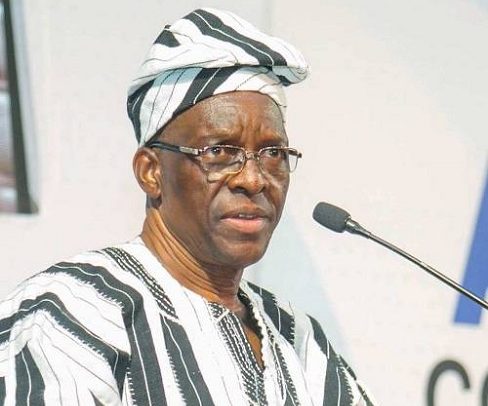
By Ernest Bako WUBONTO
A group of over 50 civil society organisations (CSOs) in education, including Africa Education Watch (Eduwatch) and the Institute for Education Studies (IFEST), are urging political parties to ensure that manifesto policies for education are aligned with the National Education Strategic Plan (ESP) 2018-2030.
This, they explained, would ensure continuity and completion of ongoing infrastructure and policy implementation programmes emphasising the importance of synergy and coherence in shaping an effective education system that aligns with the country’s broader development objectives.
In effect, the CSOs are urging the electorate and all stakeholders to keenly monitor party manifestoes and question policies that do not align with the national strategic policy.
Building on Ghana’s achievements in expanding education, the Education Strategic Plan 2028-2030 sets out the vision and policies for realising the ambition of transforming Ghana into a ‘learning nation’.
The Executive Director of Eduwatch, Kofi Asare, said: “Ahead of this election 2024, political parties have started developing and putting out their manifestoes. To ensure continuity toward achieving the education and other Sustainable Development Goals (SDGs), we – as critical stakeholders – call for the alignment of all manifestoes to the Education Strategic Plan 2018-2030”.
Education plays a fundamental role in the long-term development of a country. By aligning manifesto promises with the national education strategic plan, political parties are better positioned to contribute to sustainable development and ensure that their policies are informed by evidence-based strategies.
As an influential CSO dedicated to promoting educational reform and advocating for equitable and quality education, the Executive Director of IFEST, Peter Partey Anti, believes this alignment will ensure that education policies proposed by political parties are not developed in isolation, but are interconnected with broader national goals.
“As we approach elections, all political parties must prioritise the alignment of their manifesto promises with the national education strategic plan. There are specific targets that the country seeks to achieve by 2030, which tie in with global educational goals. It, therefore, becomes important that an education manifesto focuses on how to achieve their strategic goals set for 2030,” he added.
In 2024, Civil Society stakeholders renewed their commitment to continue working with the government to support the implementation of plans and policies in the education sector while demanding accountability for policy implementation and outcomes.
The stakeholders encouraged the Ministry of Education (MOE) to deepen civil society engagement in policies and their outcomes.
Over the years, political parties have been observed to tend to put together policies and promises that do not align with the long-term plans of the country, and most often leave some of these implementations half-way, which has not benefitted the country in any way. A classical example is the four-year/ three-year senior high school policies that were introduced back and forth.
The ESP
The ESP 2018–2030 lays out Ghana’s vision and goals for the education sector up to 2030, as well as detailed strategies for how these goals will be achieved. The document presents evidence-based priorities and policies formulated after wide-ranging consultations, ensuring that all education stakeholders in Ghana agree on the need for the delivery of quality education to the nation.
The ESP provides a clear roadmap for delivery in which all actors can see where their responsibilities and contributions lie, and what they will be held accountable for concerning the achievement of the vision.
The ESP gives an objective assessment of the state of education in Ghana, including a detailed analysis of each sub-sector, as well as setting out the demographic, macroeconomic and political contexts of the education sector.
The ESA provides the foundation and evidence for the ESP 2018–2030, presenting the strengths and weaknesses of the current system. The ESA is, therefore, structured around the same seven programme areas as the ESP, namely: basic education, secondary education, technical and vocational education and training (TVET), NFE, inclusive and special education, tertiary education, and education management.
The post Align manifesto with national strategic plan – CSOs urge political parties appeared first on The Business & Financial Times.
Read Full Story
















Facebook
Twitter
Pinterest
Instagram
Google+
YouTube
LinkedIn
RSS